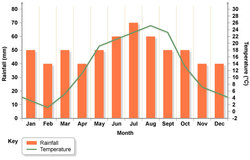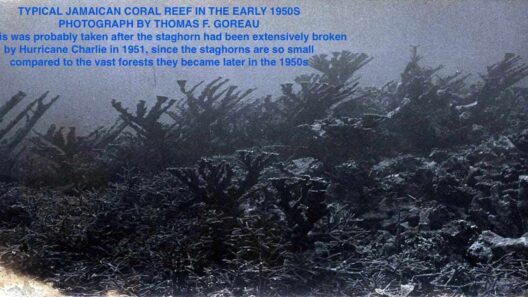The discourse surrounding climate change often spirals into conversations about influence, profit, and the integrity of those involved in advocacy. Among the most prominent figures in this arena is former Vice President Al Gore, known for his fervent advocacy for environmental awareness and climate action. This raises the tantalizing question: Has Al Gore profited from global warming awareness, or is he a genuine crusader championing a cause that transcends personal gain?
To approach this inquiry, it is essential to consider the various dimensions of profit. Profit is not solely a monetary concept; it encompasses influence, reputation, and legacy in addition to financial gain. At the heart of this analysis lies the juxtaposition of altruism against ambition—an exploration of whether Gore’s pursuits are charitable endeavors or cunning business ventures.
Gore’s journey into the climate change conversation began in earnest as he transitioned from a political figure to a passionate environmental advocate. His landmark documentary, “An Inconvenient Truth,” released in 2006, ushered in a new era of climate discourse. The film was not just a narrative; it was a gripping saga portraying the dire consequences of unchecked global warming. Its compelling visuals and poignant statistics captivated audiences, effectively igniting a global conversation on climate issues.
However, the commercial success of “An Inconvenient Truth” was remarkable. Box office earnings surpassed $23 million, coupled with significant revenue from DVD sales and educational licensing. One could argue that such figures suggest a profit motive beneath the veneer of advocacy. Indeed, the documentary functioned as a catalyst, catapulting Gore to stratospheric heights of public and media attention.
Yet, one must question the implications of financial gain in activism. Does profit negate authenticity? Or could it be argued that financial success provides resources to amplify the message? Gore’s subsequent ventures, including the establishment of the Alliance for Climate Protection and investments through his company, Generation Investment Management, further mudded the waters of intent. These enterprises attracted scrutiny, with detractors asserting that Gore’s financial interests dilute his environmentalist ethos.
It is important to examine the nature of Gore’s pro-environment investments. Generation Investment Management, founded in 2004, focuses on sustainable investments—those that champion environmental, social, and governance (ESG) factors. This approach reflects an evolving investment landscape that recognizes the long-term risks associated with climate change. In this context, Gore’s financial dealings might not simply be about lining pockets; they could signify a progressive response to a global crisis. His financial ventures demonstrate a belief in the necessity of sustainability in investment practices.
Still, the question remains: to what extent has Gore’s advocacy created financial opportunities for himself, and can such gains coexist with a genuine commitment to global welfare? The rapid rise of renewable energy markets offers a fundamental shift in economic paradigms, inevitably intertwining profit with purpose. The irony surfaces where the urgency of climate action becomes a lucrative arena. Advancements in technology and the rising demand for green solutions conjure an almost alchemical transformation—dangerous challenges morph into golden opportunities.
Moreover, one cannot overlook the role of media and public perception in this narrative. Gore’s celebrity status and vast network have afforded him unique platforms for outreach, allowing for the climate change conversation to expand. Yet, his prominence also invites critical examination. Are advocates like Gore orchestrating a spectacle, commodifying the climate crisis for personal acclaim and financial gain? The artistic metaphor of “the stage” emerges, illuminating how decorum and dialogue often blur the lines of sincerity and performance.
Furthermore, Gore’s activism engenders substantial influence. He has become synonymous with climate awareness, forging alliances with world leaders, scientists, and activists. This outreach has accomplished notable milestones—convening the Climate Reality Project, conducting international speaking tours, and influencing policy decisions. Such engagements often translate into lucrative opportunities, and while some criticize the intersections of profit and advocacy, they beg the question of whether the resulting impact justifies such financial exchanges.
It’s crucial to note that the narrative surrounding Gore is not singular; it is interwoven into the collective struggle against climate change. The motives of any individual should be scrutinized within the larger context of environmental advocacy. Profits generated by influential climate figures may ultimately serve to benefit the greater cause—funding initiatives aimed at sustainable development and mitigation strategies.
Thus, while Al Gore may have reaped financial rewards from his initiatives, they do not negate the urgency of the climate crisis he so vehemently champions. Rather, they illustrate a complex interplay between profit and purpose, where the fallout of climate change forms a distressing backdrop for economic gain. In the grand tapestry of advocacy, it is essential to recognize that the entanglements of profit and altruism need not be mutually exclusive.
In closing, the question of whether Al Gore has profited from global warming awareness is as multifaceted as the climate issue itself. His journey reveals layers of ambition, dedication, and the transformative potential of fervent advocacy. This discourse must remain fluid, ever-questioning, as the intricacies of environmental activism evolve. The ultimate call to action resides in the recognition that perhaps profit, when aligned with purpose, can yield beneficial outcomes for humanity and the planet alike.







